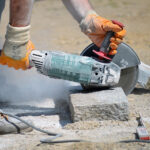
The Façade of Progress
April 8, 2024
Navigating Toxic Tort Negligence Claims under California Law
April 22, 2024Wilsonart LLC, a titan in the world of high-pressure laminates and engineered surfaces, has charted a course of aggressive growth and innovation since its inception in 1956. With a portfolio boasting an array of products from Chemsurf® to THINSCAPE® Performance Tops, Wilsonart has positioned itself as a leader in surface solutions. However, beneath the sheen of these accomplishments lies a complex web of environmental, ethical, and market concerns.
Wilsonart’s Market Monopolization Concerns
The company's penchant for acquisitions, as demonstrated by its integration of entities like Resopal, Arborite, and Technistone, raises significant questions about market monopolization. While expansion is a natural part of any company's evolution, the rapid absorption of competitors and related businesses stifles market diversity, leading to reduced consumer choices and potentially inflating prices due to decreased competition.
Environmental Impact of Engineered Surfaces
Wilsonart's foray into the artificial stone business, specifically with its quartz slab designs and the acquisition of Technistone, warrants scrutiny for its environmental implications. The production of engineered stone materials, like quartz, often involves significant energy consumption and can result in the emission of hazardous materials. Furthermore, the emphasis on artificial surfaces may detract from the use of natural, more sustainable materials, potentially leading to an undervaluation of eco-friendly alternatives in the industry.
Innovation vs. Sustainability
The introduction of products such as THINSCAPE® Performance Tops, heralded for their durability and ultra-thin design, underscores the industry's shift towards more resource-intensive and technologically complex materials. While these innovations offer aesthetic and functional benefits, they also reflect a move away from simplicity and sustainability, elements that are increasingly critical in the face of global environmental challenges.
Global Operations and Carbon Footprint
Wilsonart's global footprint, with manufacturing facilities and distribution networks spanning continents, brings to the fore the issue of carbon emissions associated with logistics and operations. The environmental cost of transporting materials across vast distances is substantial, contributing to the company's overall carbon footprint. This aspect of their operation is at odds with the growing demand for locally sourced and environmentally friendly products.
The Hidden Cost of Chemical Use in Surface Engineering
Moreover, the company's history of introducing chemical and moisture-resistant products, while beneficial in terms of durability and performance, also hints at the extensive use of chemicals and synthetic materials. The long-term environmental impact of these substances, including their contribution to pollution and waste, is a concern that cannot be overlooked.
Reevaluating Progress in the Engineered Surface Industry
In their quest for innovation and market dominance, Wilsonart has undeniably achieved significant milestones. However, these advancements come with a caveat - the need for a more balanced approach that considers environmental sustainability, market fairness, and the preservation of natural resources. As consumers become more conscious of the products they use and their origins, companies like Wilsonart must reevaluate their strategies, ensuring that progress does not come at the expense of the planet or the diverse tapestry of local industries.
Positive Innovation for the Future
In conclusion, Wilsonart LLC's journey from a small Texas-based company to a global leader in engineered surfaces is a testament to American entrepreneurial spirit. Yet, as we move further into the 21st century, it's imperative that such giants pivot towards more sustainable practices, ensuring that their legacy is not only defined by growth and innovation but also by their commitment to ethical and environmental stewardship.
Join Brayton Purcell LLP in the Fight for Sustainability
If you're concerned about the environmental impacts of engineered stone countertop silicosis and the market practices of companies like Wilsonart, you have the power to make a difference. Brayton Purcell LLP and our team of silicosis lawyers are committed to ensuring that companies adhere to ethical practices that protect our planet, workers, and consumers alike.
If you or someone you know has suffered from artificial stone silicosis, reach out to Brayton Purcell now. Don't wait—your involvement is crucial in driving change and promoting accountability in corporate America. Together, we can pave the way towards a greener, more equitable world.
Contact us today to reach silica exposure attorneys ready to work for your needs.














